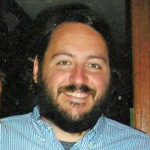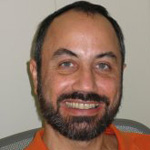Digital Media Summer Institute 2015
Interdisciplinary research,
education and capacity building
1 May 2015
Short courses with UT Austin faculty in Lisbon and Porto.
The ninth annual Summer Institute will offer students and professionals in Lisbon and Porto the opportunity to explore a variety of digital media topics. Renowned instructors and alumni from the University of Texas at Austin will teach intensive short courses from one to three weeks in duration in May, June and July. The courses will be taught at the graduate level.
The courses are offered free of charge.
Lisbon courses
 Digital Media in Theory and in Culture
Digital Media in Theory and in Culture
Chris Lucas
FCSH/UNL
May 25-June 5
Weekdays
13h30-16h30
This course will introduce themes and issues related to media, technology and society through the tools and applications of contemporary digital culture. The course begins with foundational theoretical readings the relationship between technology and society and continues on to consider the creation and dissemination of digital culture and considerations of how communication practices are being reshaped by mobile, online, and digital media forms.
Readings in semester will focus on media distribution platforms that have grown in significance in recent years, such as mobile media, gaming, and the social web. We will explore key terms often used to describe the contemporary media environment, such as network, code, convergence, and produsage, among others, and introduce key works that established the thought and theory around new media as well as more recent works that extend those ideas. Linking these readings is a concern with the constitution and maintenance of effective publics and political subjects in democratic societies. As we will see, each iteration of “new” media raises questions about the opportunities and threats they present to the possibility of an equitable and just civil society. This course is an extended consideration of these issues and their current status.
Registration deadline date : May 14
 Tag You’re It: Vernacular Classification of Images, Sound, and Video
Tag You’re It: Vernacular Classification of Images, Sound, and Video
Sam Burns
FCSH/UNL
July 6-17
Weekdays
13h30-16h30
Non-text formats like images, sound, and video are far more difficult to classify, label, and describe using automated means, yet it is the surrogate terms we think up for these objects that identify them and enable their discovery online. How is it that so many people engage in sharing images, video, and sound online without any agreed upon rules, conventions, or strategies to guide the practice of classification and description? What is the nature of a media “collection” in social media systems and how are they formed and identified by a community of users? How do people engaged in the act of sharing and distributing media online conceive of the terms they summon to describe the objects and what are the effects of those choices?
Today’s media landscape not only affords tremendous opportunities to share unprecedented amounts of information, but also enables researchers the ability to study the habits, techniques, and strategies employed by people using these systems. Through the use of open API’s and other discovery tools, we can learn more about the way people relate to their content, how they relate to one another, and how they engage with and are enabled by the systems that support the free and open exchange of information.
Registration deadline date : June 22
To apply to Lisbon Courses
Interested prospective applicants should send an email to cc@fct.unl.pt with the following information.
- The name of the course to which they are applying on the subject line of the email (one email per course);
- An application letter of up to 350 words and CV (both in English);
- Full name, address, telephone number, age and highest degree achieved. Students must also indicate the course and institution they are attending.
Porto courses
 Game Design and Development
Game Design and Development
Paul Toprac
FEUP
June 11-23, lab work June 24-30, final presentations July 1
This course provides students with the fundamentals of digital game creation. The course focuses on two areas: (1) general principals of game design and game development, and (2) development of 2D games. Topics addressed include game genres and ideation; playtesting; managing teamwork; audio, sound, and music; user interface design; and effective presentations. The course will use the game engine Stencyl.
Registration deadline date : May 29
 Media and Information Literacy in a Digital World
Media and Information Literacy in a Digital World
Kathleen Tyner
University of Porto
June 4-5, 8-9, 11
9h30-12h30
This course explores the expanding nature of literacy in a digital world. Through the use of new media tools and an awareness of the historical uses of literacy, students will explore concepts of multiliteracies and the way that literacy tools and texts change social practices over time. These social practices include the uses of personal media for cultural, economic, political and social purposes. Students explore the way that digital devices and design aesthetics affect audience reception, media distribution, and the media production process. Students will also survey international theories underlying contemporary media education and apply them to the uses of media in formal and informal learning environments. The class will address topics related to privacy and surveillance, media arts, game design and Big Data. Through team exercises and dialogue, students will identify promising practices and applications in the field to practice and enhance their media literacy skills and to design innovative, customized projects that support their research interests.
Registration deadline date : May 22
To apply to Porto Courses
Media and Information Literacy in a Digital World: registration is limited. Contact Prof. José Azevedo (jmpazevedo@gmail.com ) of University of Porto for more information.
Game Design and Development: please visit http://bit.ly/GamesSummerSchoolPorto2015

 News
News
